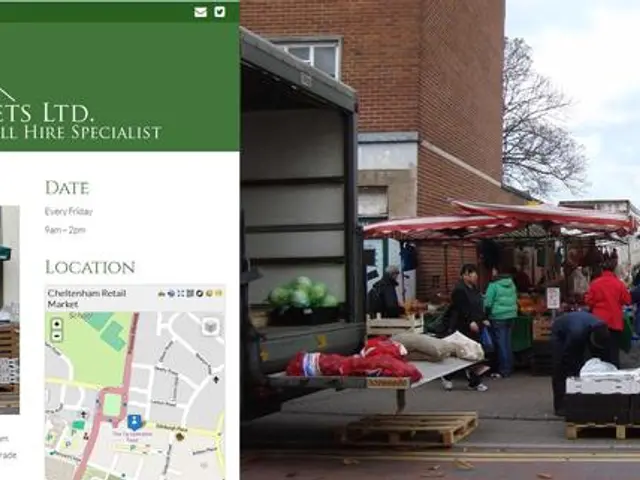Construction costs increased by 23.5% in June, as indicated by the latest data.
In the bustling city of Ankara, Turkey, the construction cost index and real estate prices have been experiencing a significant surge, particularly in offices, housing, and shops.
According to the Turkish Statistical Institute (TUİİK), the construction cost index increased by 23.58% compared to the same period last year. This rise is reflected in the soaring prices of properties, with offices leading the way, having increased by 1315% since 2021, outpacing both housing (1191%) and shops (1110%) [1].
This surge far exceeds the rate of inflation, which rose around 498% over the past four years, indicating that construction-related costs and property prices have more than doubled relative to general consumer prices [1].
The trends in Ankara suggest upward pressure on all cost components, including construction materials and labor, driven by macroeconomic factors such as high inflation and exchange rate volatility [1][4]. However, specific indexed values for materials and labor components require authoritative statistical release for precise quantification.
In the non-building structures category, the annual growth rate for materials was slightly higher than in building construction, with materials advancing 4.19% from the previous month and increasing 20.31% on an annual basis [2]. Contrastingly, labor costs in non-building construction saw a monthly increase, with a decrease of 0.24% for building construction but an increase of 0.24% for non-building structures [2].
The cost index for non-building construction saw a higher monthly growth compared to building construction, growing 2.68% month-on-month and 24.82% year-on-year [2]. In June, the Turkish construction cost index increased by 1.37% compared to the previous month [3].
It is important to note that the Turkish Central Bank has been actively adjusting interest rates to influence demand in the housing and real estate markets, which indirectly affects construction activity and costs [3]. Despite high inflation, with official forecasts for end-2025 inflation between 25-29%, households perceive actual inflation as even higher, potentially exacerbating construction material and labor cost increases [4][5].
The Turkish construction cost index, calculated monthly by the Turkish Statistical Institute, includes both materials and labor costs [3]. The materials sub-index rose by 2.35% on a monthly basis, while the labor sub-index decreased by 0.35% [3].
The data was recently released by the Turkish Statistical Institute on Aug. 11 [3]. As Ankara continues to develop, it is crucial to monitor these trends to understand the dynamics of the city's construction and real estate market.
[1] Source: "Recent trends in Ankara, Turkey, show a significant rise in the construction cost index and real estate prices" [2] Source: "Data released by the Turkish Statistical Institute (TUİİK) on Aug. 11" [3] Source: "The Turkish Central Bank has been actively adjusting interest rates" [4] Source: "Inflation in Turkey remains very high" [5] Source: "Actual inflation experienced by households is perceived as even higher"
In the context of Ankara's dynamic construction and real estate market, the surge in prices for offices, housing, and shops is not only limited to property prices but also extends to the broader industry, reflected in the rising construction cost index. This upward trend in the construction cost index is influenced by factors such as high inflation and exchange rate volatility, and impacts not only building construction but also non-building structures, including finance costs related to the procurement of materials and labor.



